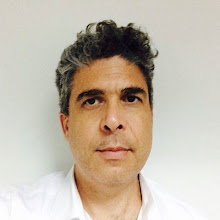Chavez's Masterstroke
Chavez was looking erratic after Mar del Plata. His diplomatic badmouthing was excessive: calling Fox “Empire’s pet” and Bush a “genocide” was, to say the least, unnecessary.
His last move, however, is simply a public relations masterstroke:
Chavez is selling cheap oil to the US.
Yes, I wrote exactly that:
Venezuelan oil is to be sold at preferential prices to the US.
Massachusetts State and Venezuela signed a deal to ensure that low-income homes from the State can buy Venezuela’s heating oil with a 40% discount.
So President Chavez is helping the American poor to cope with high-energy prices during winter, whereas President Bush hasn’t done anything to bring the oil price down.
W’s popularity is to get a hit while Chavez’s image in the States becomes the one of a Robin Hood.
And there is more. A similar deal is being cooked to sell cheap oil to low-income Bronx resident.
They recently published a survey in Guatemala measuring Bush’s popularity against Chavez’s in the Central American country. Bush won by a little edge. My guess is that if they do the same survey in Massachusetts Chavez would win the vote, and not exactly by a little edge.

